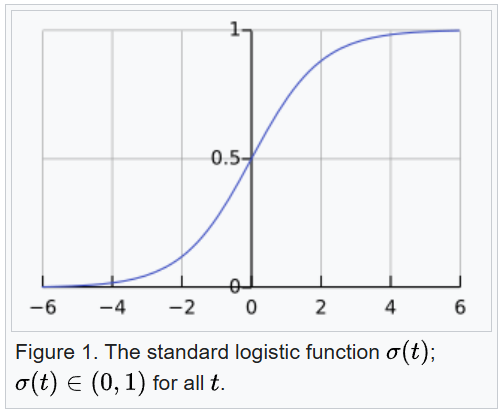Data Science
Logistic Regression
The logistic model is a statistical model that models the log-odds of an event as a linear combination of one or more independent variables.
In regression analysis, logistic regression estimates the
parameters of a logistic model (the coefficients in the linear
or non linear combinations).
In binary logistic regression there is a single binary dependent
variable, coded by an indicator variable, where the two values
are labeled "0" and "1", while the independent variables can
each be a binary variable (two classes, coded by an indicator
variable) or a continuous variable (any real value).
An explanation of logistic regression can begin with an explanation of the standard logistic function. The logistic function is a sigmoid function, which takes any real input t, and outputs a value between zero and one.
This is interpreted as taking input log-odds and having
output probability.
The standard logistic function σ:R→(0,1) is defined as follows:

A graph of the logistic function on the t-interval (−6,6) will
be like:
